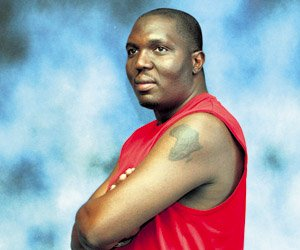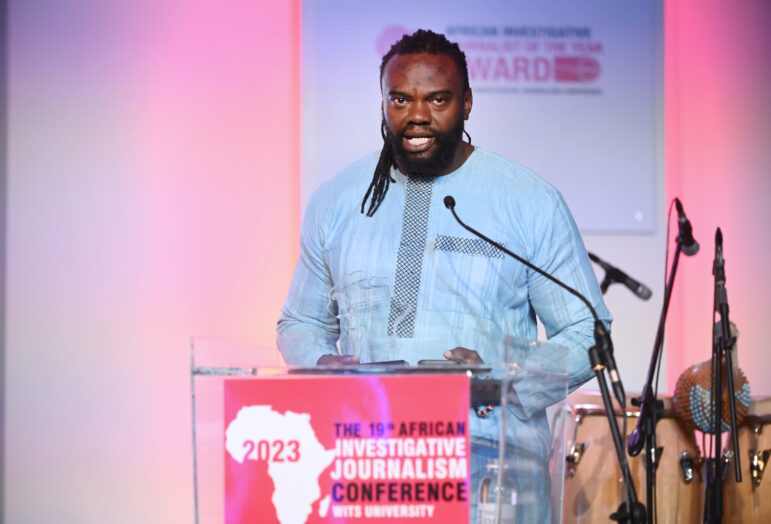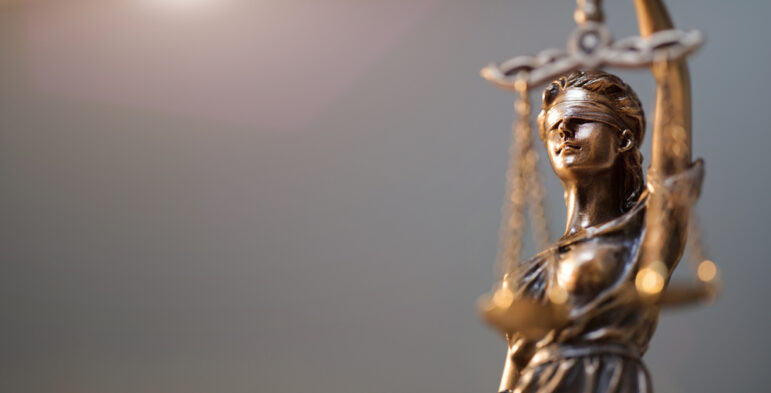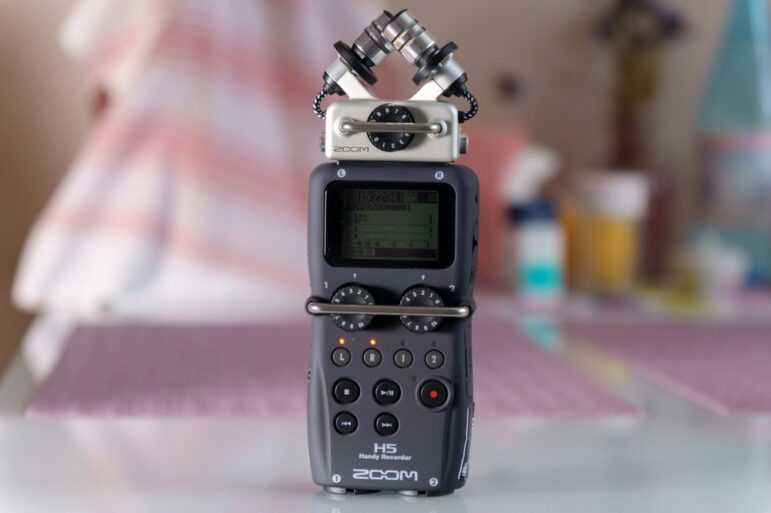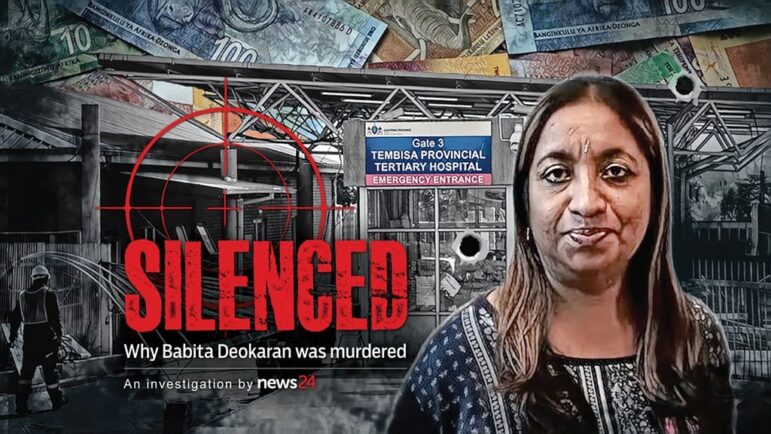

“We Are Our Worst Enemies”
Here’s the latest in our series from investigative journalists around the world. This comes from noted South African reporter Mzilikazi wa Afrika. In this impassioned speech, he invokes Nelson Mandela, Steve Biko, and Malcolm X in calling for journalists to “start a revolution” in fighting back against corrupt politicians and attacks against journalists. We’ve excerpted this from his May 24 talk at the National Seminar and AGM for Community Newspapers in Johannesburg. – The Editors
Friends and colleagues, I am not standing before you here today to share my ideas and experience as a journalist, but I want us to have a frank talk. Let us have an honest debate. Let us speak the truth and shame the devil. Let us talk about you and me. Let us talk about journalism and let us talk about politics.
I want us to talk about what we celebrate on World Press Freedom Day, when many of our colleagues from the neighboring countries have been silenced, some arrested, others intimidated and those who are unfortunate, killed in the line of duty. Their biggest crime is to seek the truth, justice, and be the voice of the voiceless, telling nothing but the truth.
Many of you know me as an award-winning investigative journalist working for the Sunday Times, but today I want to speak to you as the chairperson of the Forum for African Investigative Reporters (FAIR) because I want us to talk about journalism and its politics in Africa as we commemorate Africa Day, the 50th anniversary of the Organisation of African Unity (OAU) to be celebrated tomorrow. [module align=”right” width=”half” type=”pull-quote”]Journalists are under siege because politicians realize we have become a bunch of cowards. We have become our own worst enemies.[/module]
FAIR has members in 32 different African countries and we want to pride ourselves as the scribes flying high the flag of investigative journalism in Africa against all odds. If need be, we are going to swim with crocodiles in the river and dance with lions in the jungle, to get to the other side of town where the truth lives.
As I am speaking to you today, our profession is under serious threat. Journalists are under siege because politicians have realized that we have become a bunch of cowards. We have become our own worst enemies because we want to make a living instead of making a difference in our communities, our countries and our people. The pen is no longer mightier than a sword because the person holding it doesn’t have courage, guts and zeal to use it as a weapon to defend the truth, justice, democracy and our constitution.
Journalists today have become like old fashion Christians, no offense intended. We seem to be always turning the other cheek to be smacked all over again by politicians and business people who have soon realized that we are toothless lions roaring in the jungle, maybe we have become vegetarians and have no interest to bite anything with blood. [module align=”right” width=”half” type=”pull-quote”]Today our colleagues are hunted like animals, but we fold our arms, too afraid to stand up and fight. [/module]
Nelson Mandela once said: “A critical, independent, and investigative press is the lifeblood of any democracy. The press must be free from state interference. It must have the economic strength to stand up to the blandishments of government officials. It must have sufficient independence from vested interests to be bold and inquiring without fear or favor. It must enjoy the protection of the constitution, so that it can protect our rights as citizens.”
Mandela’s powerful words of wisdom have fallen on deaf ears, while some politicians have become like mosquitoes; irritating, disturbing the peace, and sucking innocent people’s blood.
We have become statistics, punching bags, and monotonous victims of intimidations, harassments, and on the receiving end of collaborated smear campaigns and malicious propaganda; and all without a fight to save ourselves and our profession that we claim we love so much.
As I am speaking to you today, the Committee to Protect Journalists (CPJ) has reported that 70 journalists were killed around the world last year alone and 15 of them from Africa. I can bet my last cent – some politicians were behind these killings.
And the report also states that 31 more journalists were killed in 2012 yet the motive is yet confirmed. Two more media workers, who are not journalists, were also killed.
And the carnage hasn’t stopped as the monotonous killings of our colleagues continue unchallenged with vigor it deserves.
This year alone, this is the fifth month of year, already 19 journalists were killed and 11 others scribes were also slaughtered and the motive for their death is not yet confirmed. Again politicians are suspected to be behind these murders.
Last year alone, 232 journalists around the world were sent to jail and 17 of them are from Africa. And 217 African journalists were forced into exile between 2007-2012. Again politicians and politics are behind these.
As I am speaking to you, our colleagues in Uganda, more especially from Daily Monitor, are under siege, for reporting about the letter allegedly written by a top security official, the coordinator of security agencies, General David Sejusa, better known as Tinyefuza, about a high-level assassination plot.
The letter claims there was a plot to assassinate senior government officials and politicians to pave ways for President Yoweri Museveni’s son, Brigadier Muhoozi Kainerugaba, to become the country’s next president in 2016.
Police have interrogated the newspaper’s managing editor, Don Wanyama, as well as two of the senior reporters, Richard Wanambwa and Risdel Kasasira, in trying to force them to reveal how they got the letter or how leaked it to them.
Prior to that, Endigito Radio host James Kasirivu, who commented on Sejusa’s letter on his current affairs show, was arrested by security agents in plainclothes. Kasirivu was later accused of accepting a bribe from unnamed traditional healer. Another dirty trick used by politicians and people caught with their pants down.
A few weeks ago, a Georgian deputy interior minister, Gela Khvedelidze, was arrested for allegedly leaking a gay sex tape involving a critical journalist who was investigating him and other politicians.
Khvedelidze has already admitted that he posted a secretly-filmed video depicting a threesome involving journalist Giorgi Paresashvili on the internet.
Few months ago, we saw how the chairperson of the Tanzania Editors Forum, Absalom Kibanda, was attacked by unknown thugs outside his house. Kibanda lost his eye and a finger during the attack.
Our colleagues are being attacked, harassed, and killed, yet we don’t seem to be doing something meaningful about these. We have become a bunch of cowards, quick to make some noise but too scared to stand and fight for our rights. We think tweeting about our divested plight would solve our problem, and posting an update on our Facebook pages will enforce some changes. [module align=”right” width=”half” type=”pull-quote”]Let’s start a revolution, where an injury to one journalist, anywhere in Africa, is an injury to all African journalists. Let’s unite against this enemy who is a threat to our profession, our lives, our people, our constitutions.[/module]
When a journalist is attacked or killed, the report about this ordeal is mostly buried somewhere in the section of the newspaper, for the sake of reporting about it. It’s like the newspaper is doing the journalist a favor. But when a politician is caught with his finger in the till, it becomes front page material. Yet the same journalist who exposed the politician and many others can’t grace our front pages when he is attacked or killed.
In the old days, newspapers’ mandate was to tell the truth, be the eyes and ears of the public; and to make a profit. But it looks to me that mandate has changed to increasing revenue, pleasing investors and, lastly, telling the truth like it is. Many African journalists, who were killed in the line of duty, were not properly rewarded and honored. We all attend the funerals in our designer clothes, make big speeches, and promise their families heaven and earth but leave them with hell.
We expose all the dictators, the dodgy politicians, sleazy business people and lazy public servants, yet our own newspapers accept advertisements worth hundreds and thousands of rands from the same people. When a dictator who treats journalists worse than his own dogs calls a press conference, we come running, even fighting for a space to listen to his hogwash.
When politician renowned for muzzling the media in his or her country arrives in our own countries, we welcome him with smiling faces at the international airport and even fight to get an exclusive from him or her. Is that how low we can go, fighting for an exclusive from a dirty and dodgy politician – yet we are scared to kill him between the legs? I have never seen journalists boycotting a press conference because the man or woman calling it has just ordered a hit on one of our own. We come running.
I might sound like an angry man blowing a lot of hot air. Yes, I am angry because I have joined the ranks with cowards. Professionals who don’t want to stand up and fight for our rights to work in a less haphazard environment, an environment where I won’t be an easy target for writing the truth and exposing all things wrong in the society.
I am an angry man because some of my colleagues decide to turn that other cheek when smacked on the other. We expect NGOs to fight for our cause while when hide behind our desks and workstations. Are we a generation of cowards?
For once I agree with Malcolm X, who once said: “Be peaceful, be courteous, obey the law, respect everyone; but if someone puts his hand on you, send him to the cemetery.” [module align=”right” width=”half” type=”pull-quote”]We are going to swim with crocodiles in the river and dance with lions in the jungle, to get to the other side of town where the truth lives.[/module]
I am not promoting or provoking any violence, I am a peaceful man. I am a religious man, but even my Bible tells that God helps those who help themselves.
How many times have the dictators and politicians put their hands on us, even stepped on our toes? How many journalists must die before we do something constructive about this? How many journalists must be harassed, intimidated, and character assassinated before we wake up and smell the coffee? How can we say we are having a dinner while we are sitting around the same table watching someone having our rights for supper while we have empty plates, yet we can’t stop the monster or question him?
Yesterday, journalists used to go to their favorite watering holes and gossip about politicians stealing and lying to the public. Today, the same journalists go there to lick their own wounds, talk about journalists who were attacked and killed. And when they finally go home, some of them have sleepless nights because they know they are the next targets. Yet they do nothing about it.
When I was arrested in August 2010, I saw the rage, I witnessed the public outrage, and I felt your love and support behind bars. Today, our colleagues are hunted like animals, some of them even killed in a broad daylight, but we fold our arms, some of us even weep – I am not sure whether those are crocodile’s tears – but we are too afraid to stand up and fight.
Let’s start a revolution, not tomorrow but today. Let the politicians and business people know that if they step on our toes, we are going to chop off their leg; if they put their hands on us, we are going to amputate their arms; and if they smack on our right checks we won’t turn on the left check but hit them so hard that they won’t even look themselves in the mirror for days.
Let’s start a revolution, where an injury to one journalist, anywhere in Africa, is an injury to all African journalists. Let’s start a revolution, unite against this common enemy who is a threat to our profession, our lives and our people as well as our constitutions.
If a president, government, or minister can boycott a newspaper, what makes it impossible for journalists and media houses to turn the tables around, to boycott a president, a government, or a minister? What makes it impossible for us to stay away from their press briefings and not give them any coverage at all? We know we have traitors amongst us; we have editors and managers trying to make a profit – but at whose expense?
Augustino Neto used both the pen and a machine gun to liberate the people of Angola. John Langalibalele Dube, a fine journalist and publisher, became the first president of the ruling party in South Africa, the ANC, and today the same party seems to have forgotten about all the role played by some of the journalists who serves on its ranks and executive committees, some of those journalists include Govan Mbeki, the father of former South African president, Thabo Mbeki, the courageous Ruth First, and Saki Macozoma, to mention just a few.
Our role models, the courageous journalists who paved the way for us to be here today and practicing in this profession and inspired most of us, must be turning in their graves to see our cowardly behaviors.
They used to hold a bull by its sharp horns and bring it to its knees; all we do these days is to go around chasing harmless chickens. I am talking about doyens like Benjamin Nnamdi Azikiwe, Nat Nakasa, and Henry Nxumalo; they are wondering whether we have the guts and courage to be called journalists.
Today, as we go back to our homes, I want you to look yourself in the mirror asked yourself two simple questions: Am I the coward that Mzilikazi says I am?, and how many more journalists must be harassed, intimidated, arrested, and killed before I can do something positive about it?
Lastly I would like to leave with Steve Biko’s words of wisdom when he said: “It is better to die for an idea that will live, than to live for an idea that will die.”
Thank you.
Mzilikazi wa Afrika is an award-winning investigative reporter for the Sunday Times in Johannesburg, South Africa, and board chairman of the Forum for African Investigative Reporters (FAIR). You can follow his work on Twitter at @IamMzilikazi.





